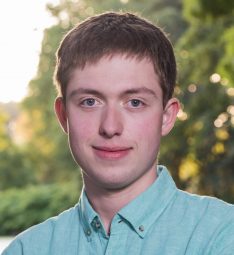Presentation
GHENT UNIVERSITY (UGENT) is an open, pluralistic and socially engaged university. It is more than 200 years old, offers more than 200 programmes (including 64 English-taught master’s programmes) and conducts in-depth research within a wide range of scientific domains. For this project two different laboratories will be involved : the LCT and the CDO.
- The Laboratory for Chemical Technology (LCT) integrates chemical science and engineering in its research on catalysis, polymerization, kinetics, reactor design and process design. LCT is part of the Department of Materials, Textiles and Chemical Engineering within the Faculty of Engineering and Architecture at Ghent University in Belgium and member of the Centre for Sustainable Chemistry (CSC) of Ghent University. LCT aims at research excellence and bottom-up innovation in the framework of technological, industrial, and societal challenges. For the eLECTRO project, its expertise on electrification of chemical processes, pyrolysis of solid plastics, py-oil use in steam cracking will be essential.
- The Centre for Sustainable Development (CDO) is committed to multi- and transdisciplinary research on the social and political dimensions of socio-technical transitions to a circular economy.
UGENT has been involved in multiple projects focused on recycling plastics via catalytic pyrolysis and/or steam cracking (IMPROOF, PSYCHE, WATCH, CPlaNeT), production of olefins via oxidative coupling of methane and cracking (OPTIMA).
Main tasks in ELECTRO
Being the project coordinator, Ghent University is involved in the management of the project and also the dissemination, training, exploitation and communication (WP leader for both WPs). Besides, Ghent University also plays a role in all other scientific work packages. In the first work package on the electrified conversion of plastic waste to high-purity pyrolysis oils, Ghent University is involved in the feed screening and characterization, the reactor design, the pretreatment and the catalytic upgrading. In the second work package on the optimized valorization of the hydrocarbon mix, Ghent University is involved in performing fouling tests to benchmark the municipal plastic waste pyrolysis oil. In the third work package on the electrified conversion of the hydrocarbon mix, Ghent University is involved in the model validation & development, providing the cocking model and the feed characterization. In the fourth work package on grid integration, environmental assessment, scalability & replicability, Ghent University is involved the strategy for integration of societal cross-cutting issues.
In eLECTRO, the Centre for Sustainable Development is part of WP4 on ‘Grid integration, environmental assessment, scalability & replicability’, particularly focussing on a strategy for integrating societal cross-cutting issues in eLECTRO’s practices. In Task 4.6, specifically, the Centre for Sustainable Development applies an approach called Socio-Technical Integration Research to (1) assess the capacities of researchers to consider socio-technical issues, (2) explore the extent to which these capacities can be exercised and, potentially, (3) enhance these capacities.
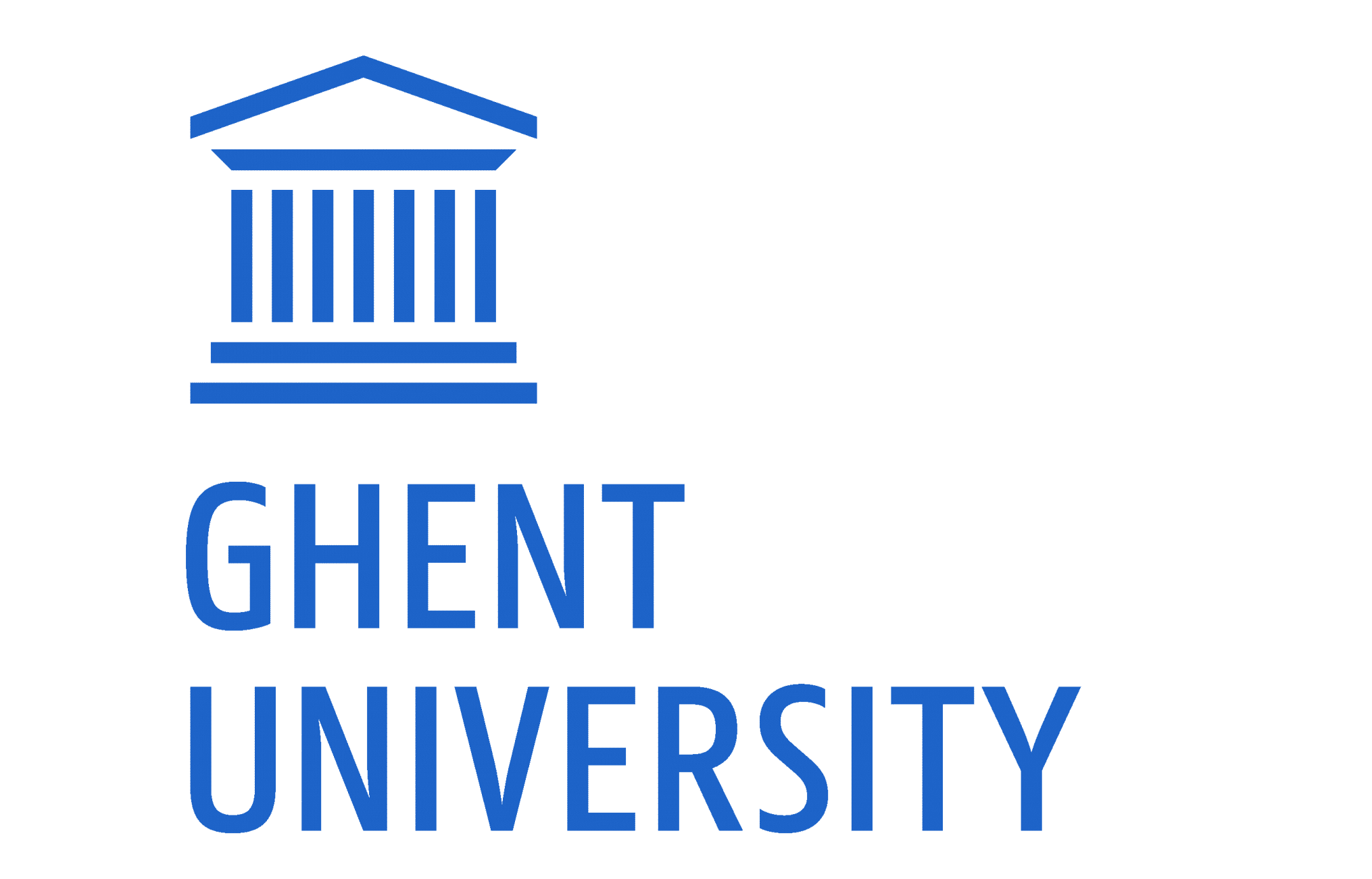
Key people on the project
Kevin Van Geem (full professor) is member of the Laboratory for Chemical Technology of Ghent University. Thermochemical reaction engineering in general and in particular the transition from fossil to renewable resources are his main research interests. He is a former Fulbright Research Scholar of MIT and directs the Pilot plant for steam cracking and pyrolysis. He is the author of more than hundred scientific publications and has recently started his own spin-off company.
He is involved in on-line and off-line analysis of complex petrochemical and biochemical samples using comprehensive two-dimensional gas chromatography. Pyrolysis, detailed kinetic modeling, process, scale-up, modeling, and anti-fouling technology belong to his main expertise.
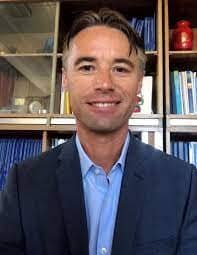
Elisabeth Delbeke is Science Policy Coordinator for the Center for Sustainable Chemistry (CSC) at Ghent University since 2016. CSC is an umbrella organization fully supported by the Faculty of Sciences, the Faculty of Bioscience Engineering and the faculty of Engineering and Architecture. Elisabeth is involved in the management of both national and international projects, amongst which the eLECTRO project. Besides, she is the Ghent University liaison contact with Catalisti, the Flemish spearhead cluster on Chemistry and Plastics.
Before starting her current position within CSC, Elisabeth received her PhD degree in Applied Biological Sciences – Chemistry and Bioprocess Technology at Ghent University in May 2016. She obtained her Bachelor of Science in Bioscience Engineering (Chemistry and Food Technology) and her Master of Science in Bioscience Engineering (Chemistry and Bioprocess Technology) from Ghent University in respectively 2010 and 2012.
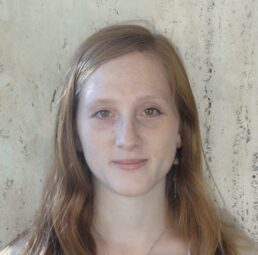
Since September 2022, Kasper Ampe works as a postdoctoral researcher at the Centre for Sustainable Development. He is involved in two European projects: ELECTRO is concerned with the chemical recycling of plastics, while SUNER-C focusses on technologies related to solar fuels, e-carriers and chemicals. In both projects, Kasper identifies socio-technical issues related to the developed technologies and hopes to facilitate a dialogue about these controversies with civil society, companies and governments as well as disciplines such as engineering and natural and social sciences.
Before September 2022, Kasper obtained a master’s degree in international politics in 2013 and, in 2014, an advanced master’s in conflict and development studies in the Global South, both from Ghent University. After a stint during 2014-2016 as a shop manager in a social enterprise focused on labour market insertion and second-hand shops in Ghent, in November 2016, he joined the Biotechnology & Society group (Delft University of Technology) as well as the Centre for Sustainable Development (Ghent university). Accordingly, at the beginning of 2022, he successfully defended his Marie Skłodowska-Curie PhD research on politics, wastewater and the circular economy. At the same time, from November 2020 to July 2022, Kasper worked on multiple projects as a policy-oriented researcher at HIVA-KU Leuven, focusing on policy, labour, just transitions and circular economy.

Bhargav Baruah is working as a Postdoctoral researcher in the Laboratory for Chemical Technology (LCT) under Prof Kevin Van Geem since August 2022. He is involved in WP-1 of eLECTRO project on the pyrolysis pilot plant of PRYME for the pyrolysis of waste plastic feeds for the production of naphtha-grade hydrocarbons. Bhargav is working alongside the R&D team from Pryme Cleantech for developing, performing, and optimizing the pyrolysis experiments, and is responsible for the characterization of the pyrolytic products.
Before starting in LCT, Bhargav received his PhD degree in Chemical Engineering from the Indian Institute of Technology Guwahati (IIT-G) in July 2022. He obtained his Bachelors in Mechanical Engineering from Gauhati University in 2015, and MTech in Energy Technology in 2017 from Tezpur Central University, India.
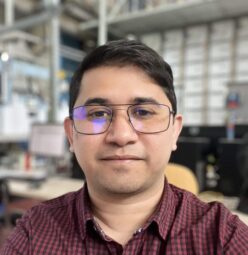
Since September 2020, Mike Bonheure has been pursuing a Ph.D. at Ghent University’s Laboratory for Chemical Technology (LCT) under the guidance of Professor Kevin Van Geem. His research is financially supported by the Research Foundation – Flanders (FWO) through project 1SD7121N. Mike focuses on advancing steam cracking reactors, with a specific interest in electrification and its comprehensive impact on plant operations. To achieve this, he employs various modelling techniques, ranging from 0D reactor models to 3D Computational Fluid Dynamics (CFD) simulations. Within the eLECTRO project, he will take a leading role in the development of a reactive CFD model for Coolbrooks’ Roto-Dynamic Reactor. This endeavour aims to gain insights into the behaviour of the flow field under different parameters, which ultimately enables the optimization of the design and its performance.
Mike holds a degree in Chemical Engineering from Ghent University and an MSc in Chemical Engineering Technology from KU Leuven. Additionally, he has obtained certificates in sustainable energy-related topics, including Climate and Energy Transition (UGent), Energy Efficiency in the Industry (UGent), and Fundamentals of Turbulent Combustion (CERFACS). Alongside his academic endeavours, he gained valuable industry experience at TotalEnergies, focusing on mitigating fouling and coking in steam cracking processes, and at IFF (formerly DuPont), where he contributed to the implementation of the REACH legislation at a plant-wide level.
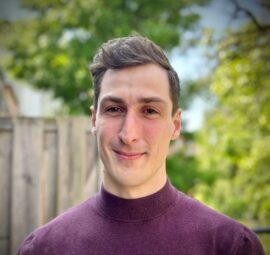
Tamás Buzogány started his Ph.D. on the steam cracking of plastic waste pyrolysis oils in collaboration with AVGI and under professor Kevin Van Geem. He focuses on modeling the decomposition behavior of plastic-waste-derived feedstocks in steam-cracking conditions to develop the most accurate and detailed microkinetic model for the simulation and online optimization of steam crackers. Within the eLECTRO project, he will contribute valuable insights into the performance and yields obtained by Coolbrook’s e-cracker. His findings will aid in optimizing operating conditions within and the geometry of the reactor for optimal performance and understanding the implications of the new feedstock on plant operation and yields.
Before starting his Ph.D., he obtained a master’s in Chemical Engineering at the Laboratory for Chemical Technology (LCT) of Ghent University, which is world-known for its expertise in the steam cracking process. He also collaborated on a feasibility study for Carbon Capture and Storage (CCS) for BASF’s EO1, EO2, and ammonia plants in their Kairos@C project. Additionally, he will finish an advanced master’s in Business Economics shortly, an education that he started to understand the financing and costs related to businesses and large projects such as eLECTRO.
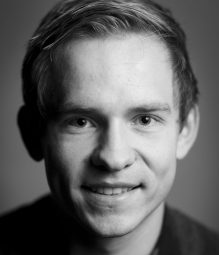
Anas Jamil Abdulrahman is currently doing his Ph.D. research on the chemical recycling of plastic waste under the supervision of Professor Kevin Van Geem. His research focuses on the steam cracking of pyrolysis oils produced from plastic wastes.
Within the eLECTRO project, he will contribute to the collaborated efforts in understanding the pyrolysis oil contaminants and their feasible removal techniques using experimental and modelling techniques.
Before starting his Ph.D., he worked as a research engineer at King Fahd University of Petroleum and Minerals, known for its world reputation in catalysis and reaction engineering. He obtained his master’s in Chemical Engineering at King Fahd University of Petroleum and Minerals.
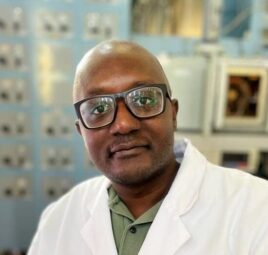
Daniël Withoeck is performing his Ph.D. in the field of plastic waste pyrolysis under supervision of professor Kevin Van Geem. His research is focusing on modelling the complex kinetic behaviour of complex plastic waste feedstocks under pyrolysis conditions. Within the eLECTRO project, he will mainly focus on assisting in optimizing the yields of pyrolysis processes, as well as providing detailed compositional data on the project’s wide range (compositionally and geographically) plastic waste feedstocks.
Before starting his Ph.D., he obtained a master’s in Chemical Engineering at the Laboratory for Chemical Technology (LCT) of Ghent University, which is world-known for its expertise in chemical recycling and steam cracking. During his studies, he cooperated with Total Energies on a feasibility study on the chemical recycling of municipal solid waste and performed an internship at the company’s Naphtha Cracker 2 in the Port of Antwerp.
